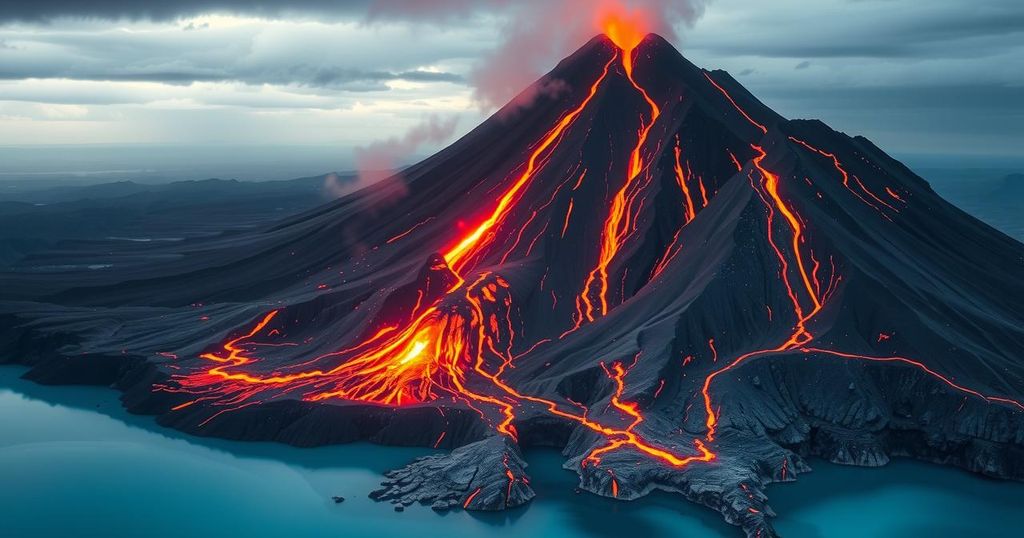Impending Volcanic Eruptions: A Call for Global Preparedness

Researchers are warning that the world may soon face a massive volcanic eruption, with significant potential for climate chaos. Historical data indicates a 1 in 6 chance of such an event occurring this century. The consequences could be dire, particularly in an already warmed world, with millions at risk and enormous economic losses expected. Proactive preparation is essential to mitigate the catastrophic impacts of future eruptions.
The potential for another catastrophic volcanic eruption looms over the planet, reminiscent of the 1815 eruption of Mount Tambora, significantly altering global climate and triggering widespread chaos. Scientific assessments indicate the likelihood of a massive eruption occurring this century is approximately 1 in 6, according to Markus Stoffel, a climate professor at the University of Geneva. The ramifications of such an event would be unprecedented in a world already destabilized by climate change.
The 1815 eruption not only resulted in dramatic temperature drops, but it also caused extensive agricultural failures, leading to famine and disease. In modern context, the implications of a similar eruption could be compounded due to increased population density and climatic vulnerability. Volcanoes engage in complex atmospheric interactions, notably through the release of sulfur dioxide, which can cool the planet significantly. Previous eruptions, such as Mount Pinatubo in 1991, demonstrated the capability for temporary global cooling, which may be exacerbated under new climate conditions.
Modern research shows how atmospheric processes interact with volcanic eruptions, emphasizing an increased risk of severe climate responses in a warmer world. The potential cooling effects may become more significant due to altered air circulation patterns resulting from climate change, which could enhance the dispersal of aerosol particles created by volcanic eruptions. This poses a paradox: as global temperatures rise, the cooling effect of future eruptions could be more pronounced than in the past.
Experts caution that the risks are particularly acute for populations living near active volcanoes, with approximately 800 million individuals residing within 60 miles of such sites. The societal and economic costs of a massive eruption could be staggering, with projections indicating economic losses could surpass $3.6 trillion within the first year, severely impacting global food security and geopolitical stability. The unpredictability of volcanic eruptions adds to the urgency of preparing for potential calamity.
Lastly, while the world cannot prevent such eruptions, preparedness is crucial. Experts recommend developing comprehensive response strategies to mitigate impacts from future volcanic activities, including detailed plans for evacuation, resource allocation, and food security. The world may currently be ill-equipped to handle the aftermath of a massive eruption, highlighting the necessity for proactive measures to address this looming threat.
The historical context of volcanic eruptions underscores their significant impact on climate and human society. The 1815 eruption of Mount Tambora serves as a cautionary example, leading to the ‘year without a summer’ and significant suffering. Current geological studies suggest that the volcanic activity may be re-emerging, with scientists warning of an increased likelihood of massive eruptions occurring in a highly populated and altered world impacted by human-induced climate change. Understanding the interplay between volcanology and climate dynamics is critical for anticipating future events.
In conclusion, the looming threat of a massive volcanic eruption presents urgent considerations regarding global preparedness. While historical eruptions have had substantial climatic consequences, the unpredictable nature of such events in a warming world amplifies potential risks for densely populated regions. It is imperative for scientists and policymakers to prioritize research and preparedness efforts to mitigate the human and economic toll of future volcanic activities, moving beyond mere speculation to actionable strategies.
Original Source: edition.cnn.com






